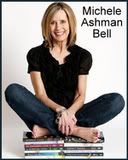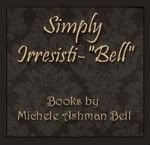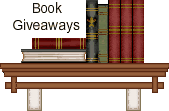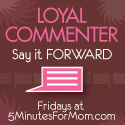
Susan Dayley is the author of Redemption, the story about Jonah. She has loved stories and the magic of words since childhood. Many nights she would tell adventure stories to her sisters. Often she would escape to a grassy meadow or climb a backyard willow tree to read a beloved book. As a child, her favorites included Joe's Boys, Call of the Wild, and Heidi.
For several years, after her children were grown she taught at private schools where she had the best classes and students a teacher could hope for. Susan has two children who are expanding themselves into families and this June she became a first time grandmamma.
Susan loves her husband, books, hiking, her garden, starry nights, jazz music, lilacs, email, dried apples, BYU football, deep snowy mornings, time with her family, road trips and grandbabies.
Redemption is the story of Jonah as it has never been told before. With historically accurate details, rabbinic traditions, and endearing characters it tells the story from the humble home of Jonah's mother, to the belly of a fish, to the vast, wicked city of Nineveh. Jonah lived during the time of the brutal Assyrian Empire. It was a time of Kings and prophets, pagan gods, and marauding armies. When Jonah is called to go to the fearsome city of Nineveh deep into the Assyrian Empire to cry repentance, he chooses to flee in the opposite direction. Redemption is about second chances and forgiveness.

From the back of the book:
It is the eight century B.C. No Hebrew will purposely venture into the Assyrian Empire, whose practice of barbarous slaughter casts a shadow of fear over all of Israel. But God calls Jonah, and Israelite prophet, to cry repentance to the evil empire's capital: the great and terrible city of Ninevah.
Fearing the Assyrians and doubting the wisdom of the divine call, Jonah flees in the opposite direction. But in a series of miracles, God gives Jonah a second chance to obey. And while Jonah does eventually preach in the great city, the prophet still has some lessons to learn.
With historically accurate details, Redemption is a story of repentance, trust, and God's Love for all his children.
Susan's book has received strong praise and glowing reviews. If you haven't had a chance to read her book, pick it up today!
Here is my interview with Susan:
M.B.: When did you first know you wanted to be an author?
Susan: Junior High, when a paper I wrote on a patriotic theme was chosen to be read at a school assembly. Thankfully the flood-lights were so bright I couldn’t see the audience. I’ve wondered since if I could get some for the next time I’m asked to speak in church? Anyway, that was the moment.
M.B.: What is your writing and educational background?
Susan: I’m a Novice at writing regularly. Besides the school classes and encouragement from teachers to publish, it wasn’t until last year that I actually gave it the time it needed and entered the world of submissions.
M.B.: What makes you passionate about writing?
Susan: Words grip me—not just the opening lines of A Tale of Two Cities, but others like the more contemporary words of Chaim Potok: “All around us everything was changing in the order of things we had fashioned for ourselves.” It is this ability to touch minds and hearts that I find fascinating and challenging.
M.B.: What was the pathway like for you to get your first book published?
Susan: Like most authors—there were several “After careful consideration. . .” responses, and one that gave hope: “if you could. . .” However that one bit of light was enough and I seized the opportunity. I rewrote for three months non-stop. I think first-time writers can cross deserts on even a glimmer of approbation.
M.B.: Were you ever discouraged along the way? If so, how did you deal with it?
Susan: I didn’t give myself time to be discouraged then. Promoting is a whole different beast.
M.B.: What is your writing schedule like?
Susan: I wake up most mornings around 6am and write for a couple of hours before I slink down to my basement and the treadmill. Then I try to get a few more hours in throughout the day. When I have deadlines, I write, and the house gets by with bare necessities: laundry, clean bathrooms and simple meals. That’s when the dust accumulates and my plants start to wilt.
M.B.: Where do your ideas come from? How do you know the idea is good enough to write a book about it?
Susan: I write about people from history who inspire me. I write what I love, and if someone else enjoys it also, that’s a bonus.
M.B.: When did the idea for this book first come to you?
Susan: I was teaching at American Heritage School and among the literature curriculum, I was to teach Jonah (from the scriptures.) I needed to research background, setting, and themes besides the other literary elements. That was when I realized there was so much more to Jonah than just another “big fish story.”
M.B.: What do you hope readers will get from this book?
Susan: We all make mistakes, and many have moments where we’re afraid to be the person God has called us to be. But he extends to all his forgiveness, love, and a second chance. Plus, I found the world of 700+ BC rather fascinating.
M.B.: What is your process of brainstorming a story? Do you just sit down and write, waiting to see what happens next? Or do you outline first?
Susan: With Jonah and Hezekiah (the manuscript I am currently polishing) I had the scripture story to tell me what happened next, but still I just wrote without thinking ahead. Now, I am learning to outline and I am excited about how this will affect my next story.
M.B.: Do you ever experience a snag in a story, a form of writer's block? If so, how do you deal with it?
Susan: Not while writing yet, but yes, in deciding what my next project will be. So since I have three possibilities, I’ve just started to outline one and gather research for another. I was going to take time off, but found that my need to write was greater than a need for a break. I’ll settle on one book when Hezekiah gets a home.
M.B.: Do you need absolute quiet to write? Do you listen to music when you are writing?
Susan: I need quiet. Music distracts me because I listen to lyrics.
M.B.: What kinds of inspiration do you use during your story creation periods?
Susan: Sometimes personal experience. For example when Jonah is crossing the pass to Damascus, I remembered a time when I was canoeing in Yellowstone and I didn’t think I’d ever get to the shore. After a long day of paddling across one lake, and up a river, we were still about three hours from shore on a second lake. My arms were in pain to the point of collapse, but I had no choice but to keep rowing. I began making bargains with myself such as counting strokes before I allowed myself to switch the paddle to the other side.
Also people I’ve known. My granddad’s picture sits on my desk and occasionally he makes his way into my stories.
M.B.: Who has made the greatest difference for you as a writer?
Susan: Dickens. There are others of course, but Dickens taught me not to worry about being overly explicit, but to give the reader some credit for understanding metaphors and innuendos. Now if I could only write them with a fraction of his skill. . .
M.B.: What’s your secret to making the character’s in your books come to life?
Susan: I try to remember that there is selfishness, kindness, anger, hope, despair, love, fear, and joy in most of us. We all make mistakes, but whether we give into those mistakes or regroup and make the right changes determines if we are heroes or villains.
M.B.: Which of your books is your favorite, and why?
Susan: The one I haven’t written yet because the characters are already visiting me in the falling asleep hours.
M.B.: What is something about yourself people don’t know?
Susan: I’m not afraid of ghosts. I grew up the 2nd of nine children and our favorite summer activity was night games in the cemetery. Sometimes we paused to jump up and scare groups who had dared themselves to walk through. I still have a bit of mischief in me.
M.B.: What is your favorite snack to have while you are writing?
Susan: Almonds, sometimes chocolate, sometimes chocolate covered almonds.
M.B.: What words of advice do you have for other writers who desire to have their manuscripts become books in print?
Susan: Connect with people every way you can. Good things follow.
M.B.: What are you working on now?
Susan: After the story about King Hezekiah, probably one based around the pilgrims. But that keeps changing.
M.B.: Any final words you would like to share
Susan: Fridays, on my new blog, I am doing book review swaps for anyone interested. Contact me at my email below.
M.B.: Where can our readers go to find your books and order them?
Susan: http://susandayley.com has links to Amazon, Barnes and Noble, Deseret Book etc.
sdayleywrite@gmail.com
http://susandayley.wordpress.com
book trailer: http://www.youtube.com/watch?v=I0uc9Nva9fQ
http://www.facebook.com/pages/Susan-Dayley/238278851133




























































-page-001.jpg)














1 comment:
Great interview. It was really nice learning about you and your writing process, Susan. I have always loved the story of Jonah. I will definitely have to check out your book!
Post a Comment